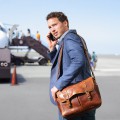In the wake of President Barack Obama’s visit to Cuba, Priceline Group is making Cuban hotel rooms available to U.S. customers through its Booking.com subsidiary.
The announcement was made Monday, March 21, the day after Obama landed in Cuba, the first time a U.S. president has visited the country since Calvin Coolidge in 1928. The visit is perhaps the most overt signal of the improving relationships between the two countries, which was all but severed with the overthrow of U.S.-backed leader Fulgencio Batista in 1959 by communist-backed Fidel Castro.
Full diplomatic relations between the U.S. and Cuba were restored last year.
Americans should be able to reserve and pay for rooms at several Cuban hotels with a few weeks, according to Todd Dunlap, Americas Managing Director for Booking.com. Dunlap’s comments were reported by the Reuters news agency. Prior to this, Cuban hotels had to be reserved through travel agencies or tour groups.
The news from Priceline follows closely U.S. hotel firm Starwood Hotels & Resorts Worldwide’s striking a management and marketing deal with Cuba for three Havana hotel properties.
You Might Also Enjoy: Hilton Announces New Budget Hotel Chain
Initially, Havana will be the only city available for room bookings, Dunlap said. Booking.com will work with foreign firms, including France’s Accor and Spanish chains Meliá Hotels International SA and NH Hotel Group SA, which already have a presence on the island. Booking.com also will be seeking deals with Cuba’s state-run chains.
Airbnb, the online home-rental site, began operating in Cuba in April 2015, and was the only major lodging service available to American travelers in Cuba.
Obama announced the restoration of diplomatic ties with Cuba in December 2014, and soon after Priceline began working on a deal with the Cuban government.
The shift in diplomatic policies has been a boon for – and a strain on the infrastructure of – the island nation’s tourism industry. Many of Cuba’s 63,000 hotel rooms are booked months in advance, and prices have soared. Last year’s tourist total was 3.52 million, a record, and an increase of 17.4% over 2014. American visits were up a staggering 77 percent to 161,000.
Technically, tourism to Cuba still is forbidden under the U.S. trade embargo. Americans visiting Cuba must do so under “general licenses” that allow travel for reasons approved by the Treasury’s Office of Foreign Asset Control such as religion, family visits, cultural exchange and sports. The office added individual people-to-people educational exchanges to the approved list in March.
Booking.com would ask travelers to declare an approved travel categories, but would not verify it, Dunlop told Reuters. Information is kept on file for five years by the company in case officials check.






